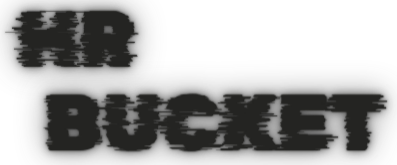This work demonstrates the need for technical skills as more and more people enter the quantitative finance work environment. Doing well in quantitative finance interviews requires one to grasp challenging mathematical concepts and program answers and use great strategy in approaching all the questions being asked. This guide gives a comprehensive step-by-step guide with actionable steps on how to prepare for these interviews that can often be the tipping point for or against an applicant.
Introduction to Quantitative Finance Interviews
What is quantitative finance?
Quantitative finance is the quantitative version of finance science, or ‘quant finance’ for short, which combines mathematical and programming methods with financial theories to determine behaviors in the market. It involves people such as quant researchers, algorithmic traders, and risk managers who work by mining data to make and manage investments, control risks, and develop trading strategies.
Why Prepare Thoroughly?
As is well known, quantitative finance interviews are apt to be exceptionally tough, requiring good technical, analytical, and interpersonal skills. The questions that are usually asked in an interview cut across price of derivatives, managing risks, programming in quantitative finance using Python, and others. Structure in preparation is crucial to prepare for an opportunity to showcase your skills and get your desired position.
Core Concepts in Quantitative Finance
Probability and Statistics
It therefore goes without saying that statistical tools lie at the heart of quantitative finance. Jargon such as hypothesis testing and probability distribution makes the understanding of statistics essential in the pricing of derivatives, risk measurement, and portfolio management.
Common questions:
- “Explain how you would calculate Value at Risk (VaR) for a portfolio.”
- “What’s the significance of p-values in hypothesis testing?”
Linear Algebra Essentials
Specifically, eigenvectors, transformations, and matrices are essential to most advanced financial models and calculations. Be prepared for the problems that check your skills in working with large amounts of data employing the linear algebra methods.
Calculus and Optimization
Starting from the strategies for trading to the derivation of the assets’ value, calculus is used. Customarily, questions could border on Lagrange multipliers, gradient descent methods, integration methods applied under modeling situations, etc.
Key Skills Needed for Success
Programming Skills (Python, R, C++)
Quant roles will not be considered without coding experience. Algorithmic trading interview questions and data analysis are solved with the help of Python and such libraries as NumPy and DataFrames for analysis. Likewise, R for statistical estimation and C++ programming language for high computational implication are preferred.
Data Analysis and Modeling
Finance professions require a strong appreciation for the subject of how to do analysis for meaning. It is expected that tasks involving regression analyses, clustering algorithms and the creation of models for predicting market trends will be performed.
Problem-Solving Skills
Quantitative roles employ creative solutions for issues that are complex in nature. Stewey test questions apply that use puzzles or hypothetical events that are presented to ascertain your logical skills.
Types of Quantitative Finance Roles
Quantitative Analyst
Quant analysts are assigned the job of using various parameters to model the market and evaluate risks. This area may be relevant to the quantitative finance interview questions to check how well you do in stochastic processes and financial derivatives.
Algorithmic Trader
Algorithmic traders try to come up with algorithms that will govern their trading processes. Several of the algorithmic trading interview questions may concern ways of speeding up algorithms for use in high-frequency trading domains.
Risk Manager
Risk managers study losses that might occur in an organization and look for ways to prevent them. Questions that are usually asked during a risk management interview mainly focus on the ability of the company to estimate the market risk utilizing statistical measures, and the same applies to credit and operational risks.
Common Interview Formats
Technical Interviews
Technical interviews are put in place to test the candidate on quantitative finance technical problems such as derivatives pricing, data structure for finance interviews, programming, and the like. Be ready to complete the Computer Science impromptu tasks or mathematical problems.
Behavioral Interviews
Being asked behavioral questions during finance interviews, the employer is keen on getting to know your interpersonal and organizational skills and whether you shall fit the culture of the organization. Applying the STAR method allows providing clear and concise actions and results.
Case Study or Problem-Solving Rounds
Case analyses are formats that try out your capacity to transform theoretical concepts into real-life situations. For example, let’s have a look at cases where you have to use such capability, e.g., estimating a company’s risk profile or developing a set of rules that define the best way to trade stocks.
Technical Topics Frequently Asked
Derivatives and Pricing
You are going to be quizzed on Black Schools, Greeks, coming up with arbitrage-free, etc.
Financial Modeling
You should expect to build models for constructing efficient portfolios as well as for constructing portfolios for various scenarios or forecasting financial performance.
Market Microstructure
Issues are generally posed in relation to the dynamics that affect trading, such as order flow, liquidity, and market participants.
Behavioral Questions to Expect
Examples of Behavioral Questions
- “Tell me about a time when you faced a significant challenge.”
- “How do you prioritize tasks under tight deadlines?”
STAR Method for Answering
Break down your responses to behavioral questions into four parts: SITTING Scenarios and get TACR. This framework makes sure that your answers are orderly and bring the effect you desire.
Showcasing Teamwork
Quantitative finance used in practice can also not exist without interaction. Focus on situations where you cooperated with other people in delivering solutions and why you devoted attention to cooperation and coordination.
Programming Tasks in Interviews
Writing Efficient Algorithms
Computer programming activities always challenge you to write programs that will provide solutions to particular problems in the most efficient way possible. Get ready to answer algorithmic trading interview questions related to the efficiency of your computational solutions.
Data Structure Challenges
A lot of hash maps, trees, or graphs might be presented to you by the interviewers, and you will be expected to manipulate them. It is important to understand the concepts they borrow and use in establishing these structures.
Real-Time Coding Tips
Explain the way your mind works when you are coding. For example, describe the correct way of explaining how you approach the debugging or optimization of a function when facing the interviewer.
Case Study Questions Explained
Understanding the Problem
Spend some time and analyze the case to understand the main problems of the situation. It’s okay to ask questions if you are uncertain that you are solving the right problem.
Structuring Your Answer
Next, respond according to a logical flow of ideas. Initiate with problem formulation, discuss your analysis method, and end with the implications or suggestion.
Real-World Examples
By connecting your case study responses to concepts that are seen in practice, such as managing risks or engineering a portfolio, you can show that you know how the theories apply in real life.
Best Resources for Preparation
Recommended Books
Some of the best books for quantitative finance include:
- Paul Wilmott Introduces Quantitative Finance
- Python for Finance by Yves Hilpisch
- Options, Futures, and Other Derivatives by John Hull
Online Courses and Tutorials
Popular free platforms that have a rich set of tutorials are Coursera, Udemy, and QuantNet, which cover everything, starting with derivatives pricing and ending with Python for quantitative finance interviews.
Practice Platforms
To mention a few, there is LeetCode and HackerRank, and you’ll find specialized coding platforms such as Qua few and Tart.
Tips for Effective Preparation
Time Management Strategies
Break down your preparation into workable parts and such, which includes derivatives pricing, programming, and behavioural questions.
Mock Interviews
When you mimic an interview scenario, it gives you the working environment of a real interview and increases your confidence.
Keeping Up with Industry Trends
Be aware of the ongoing trends in quantitative finance by reading the articles in the newspapers and periodicals and by visiting blogs and forums.
Common Pitfalls and How to Avoid Them
Misunderstanding Questions
Active listening is critical. If something is not clear, ask the question again; do not assume what the other person has said or meant.
Overlooking Behavioral Rounds
You should never downplay the importance of behavioral interviews. Learn how to answer behavioural interviews with questions in your finance interviews by using scenarios from your professional background.
Lack of Communication Skills
There are things that, if you do them right, will help you stand out, and clear and effective communication is part of this. Try narrowing down what for you is a complicated idea into easily understandable elements.
Importance of Networking and mentoring
Building Industry Connections
Show up to finance conventions, get involved in taking part in finance groups on LinkedIn, and interact with professionals.
Finding a Mentor
Mentorship gives individuals an opportunity to be guided on issues to do with the field as well as getting someone who shows them behind the scenes.
Using LinkedIn Effectively
Customize your profile to make an employer or recruiter quickly aware of your strengths and accomplishments. Useful tip: on a regular basis, share valuable insights or articles that will help you create a reputation as an expert in the field.
Strategies for Day-of-Interview Success
Staying Calm Under Pressure
Use changes of focus activities such as deep breathing or imagining to help to calm down.
Dressing Professionally
First impressions matter. The personal appearance should be formal but not strictly business-like to keep with the company’s dress code.
Asking Insightful Questions
Sometimes electronic communication is the only way to be in touch with members of the team; thus, you should have some questions about the team, company, or state of the industry as evidence of concern.
The Road Ahead After Interviews
Following Up
Write an email of appreciation to the interviewers. It helps to quote certain discussions that were said in the interview to present that they were listened to.
Handling Rejections
Rejected people can also be builders of their careers. Ask for feedback to consider new possibilities and find out about problems.
Negotiating Offers
Appreciate the value you bring to your employer and then bargain for a package deal that you deserve and one that meets your skills and experience.
Conclusion
To pass quantitative finance interviews, one has to work hard, prepare, and have confidence in him/her. Studying the fundamental principles, strengthening the programming, and solving sample interviews is what is necessary to succeed. Never lose track of efforts, look for what you can do about any problem, and bear in mind that perseverance indeed fields.
Frequently Asked Questions (FAQs)
1. What are quantitative finance interviews?
The technical, analytical, and soft skills necessary for positions such as algorithmic traders and quantitative analysts are evaluated during quant finance interviews.
2. How long does preparation take?
Preparation normally ranges from 3-6 months, depending on one’s background.
3. Which books are best for preparation?
Some examples are Paul Wilmott Introduces Quantitative Finance and Python for Finance by Yves Hilpisch.
4. Do I need advanced programming skills?
Yes, for the majority of jobs, fluency in languages like Python, R, or C++ is required.
5. Are mock interviews worth it?
Of course! Mock interviews help you pinpoint your areas of weakness and boost your confidence.
6. What salary can I expect in quantitative finance?
Typically, entry-level positions pay between $100,000 and $150,000, with the possibility of large bonuses.


GIPHY App Key not set. Please check settings